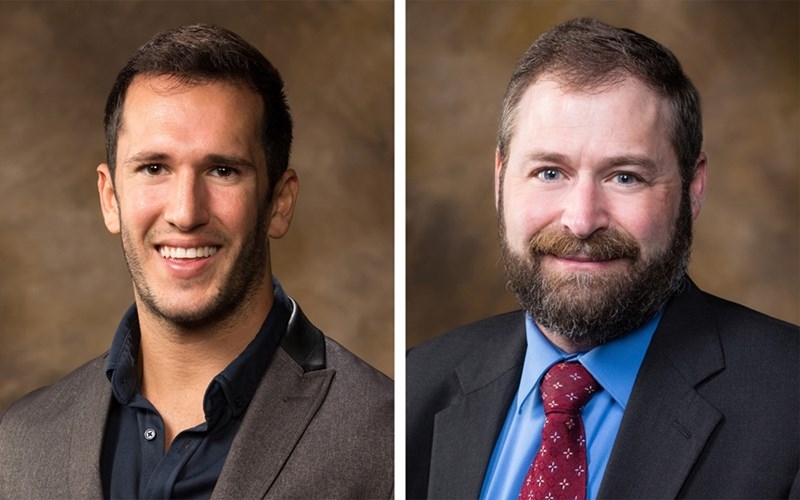Charter schools proved more cost effective and yielded a greater return on investment than traditional public schools in seven cities, according to a new report by a research team based at the University of Arkansas.
"Making it Count: The Productivity of Public Charter Schools in Seven U.S. Cities," focuses on Camden, New Jersey; Denver; Indianapolis; Shelby County in Memphis; New Orleans; San Antonio; and Washington, D.C. The report indicates that charter schools yield more learning per education dollar spent in each major city.
Researchers found that, on average, charter schools produce higher student achievement gains than traditional schools, as measured by the National Assessment of Educational Progress. This was true for all seven cities. In reading, charters average 5.92 points higher — per $1,000 funded — than traditional schools, making charter schools 43% more cost-effective in reading. The cities with the highest cost-effectiveness advantage for charters in reading were Camden (92%), Indianapolis (78%), Denver (55%), New Orleans (51%) and Washington, D.C. (45%).
In math, charters average 6.26 points higher per $1,000 funded, making them 43% more cost effective, researchers said. The cities with the highest cost-effectiveness advantage for charters in math were Camden (88%), Indianapolis (79 %), Denver (55%), New Orleans (52%) and Washington, D.C. (46%).
"Charter schools are proving capable of accomplishing more despite the funding disparity between charter and traditional schools reaching a record high of 33 percent," said Patrick J. Wolf, Distinguished Professor and 21st Century Chair in School Choice in the Department of Education Reform at the U of A. "Policymakers should consider charters' success and explore legislation to invest in all students equally, regardless of whether they attend a public charter or traditional public school."
For this study, Wolf was joined by Corey A. DeAngelis, a former doctoral student in the U of A education reform department who's now director of school choice at the Reason Foundation and an adjunct scholar at Cato Institute.
Charter schools also delivered a greater academic return on investment in all seven cities, researchers said. Charters' ROI exceeds that of traditional public schools by an average of 46% over the course of a 13-year investment in a K-12 education. Camden ranks first, with charter schools delivering an ROI that is 139% greater than traditional schools. Indianapolis came in second, with charters' ROI 104% greater than traditional public schools, followed by New Orleans (66% greater) and Denver (59% greater).
The report finds that charter schools generate greater lifetime earnings per student than traditional schools. On average, each dollar invested in a student's schooling in traditional public schools yields $5.46 in lifetime earnings. That same dollar invested in a charter school student yields $8 in lifetime earnings. The difference in lifetime earnings per dollar invested of $2.54 more from charter schools, times the average total investment in each child's education of $191,802, means that the charter schools in this review of seven cities produce $487,177 more in lifetime earnings per student than traditional public schools, Wolf said.
"Education leaders and local policymakers should pay attention to charter schools' successful models and consider how charters make each dollar go farther," DeAngelis said. "Importantly, policymakers should fund students, not systems."
To measure cost effectiveness and ROI, the researchers matched performance data from the National Assessment of Educational Progress and research findings from CREDO at Stanford University. CREDO's rigorous evaluations carefully control for student background factors that affect test scores, yielding reliable estimates of the causal impact of public charter schools on student achievement, Wolf said. Researchers combined the CREDO achievement findings with comprehensive data regarding the total funding received by schools in the public charter and traditional public school sectors in the 2017-18 academic year.
This report is the second in a series of three and follows "Charter School Funding: Inequity Surges in the Cities," which found that across 18 major cities, public charter schools received 33% less funding compared to traditional schools. The next report, scheduled for release later this spring, will examine funding inequities by discussing differences between traditional and charter schools around special education, facilities funding, levels of student disadvantage and more.
About the University of Arkansas Department of Education Reform: The mission of the Department of Education Reform is to advance education and economic development in Arkansas and nationwide by focusing on the improvement of K-12 schools. The Department of Education Reform is committed to producing and disseminating high-quality research that will inform policymakers, scholars, parents, teachers, administrators and the general public about policies and practices that could improve the performance of schools in Arkansas and nationwide.
Contacts
Patrick J. Wolf, Distinguished Professor
Education Reform
479-575-2084,
Shannon Magsam, director of communications
College of Education and Health Professions
479-575-3138,
